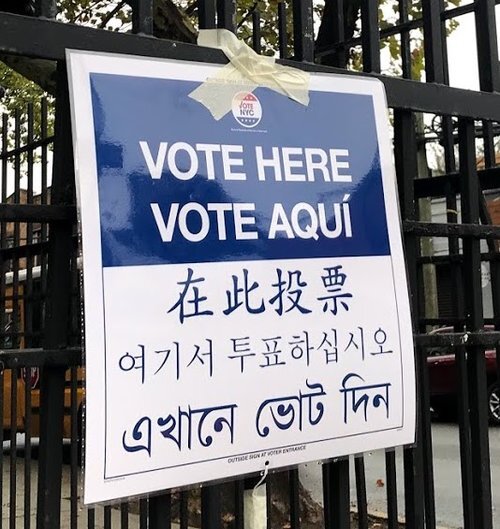Press Release from the Mainz city government, 25 MAY 2021
Courtesy Translation: Nadine Bower, Community Relations
Since Wednesday, 19 May 2021, the 7-day incidence in the state capital Mainz has been below the limit of 100. As of Thursday, 27 May 2021, at midnight, the rules of the Federal Emergency Brake will no longer apply, and rules of the 21st Corona Control Ordinance of the State of Rheinland-Pfalz will be back in effect.
Press release: Federal emergency brake to end in Mainz on Thursday
Starting Thursday, May 27, 2021, the following regulations will apply to the city of Mainz, among others:
The night curfew from 10 p.m. to 5 a.m. is no longer in place.
Contact restrictions: Staying in public spaces is possible with a maximum of five people from two households. This does not include children of both homes, including 14 years of age, as well as vaccinated and recovered persons.
All trade may open again. The same conditions apply as currently are in place in grocery stores (testing and appointment shopping are no longer applicable). The personal limit per square meter of sales or visitor space of one person per 10 square meters applies for the first 800 square meters, and for larger stores, one person per 20 square meters. The distance requirement, as well as the obligation to wear FFP2 or medical masks also applies.
Services on the body, such as hairdressers, foot care, opticians, hearing care professionals, speech therapists, etc., are permitted if they serve medical or hygienic reasons. In addition, the service in the field of personal care, such as nail salons, beauty salons, massage parlors, tattoo studios, piercing studios and similar facilities is permitted again. The obligation to wear FFP2 or medical masks as well as the obligation to register contacts still applies. The basic test obligation is no longer required. If a mask cannot be worn due to the nature of the service (such as for shaving or certain cosmetic applications), the customer must bring a negative result of a corona test, which is no older than 24 hours, or do a test on site.
Restaurant establishments are allowed to open their outdoor areas. The distance requirement applies, as well as the obligation to wear FFP2 or medical masks, the obligation to register contacts and a test obligation, except for vaccinated or fully recovered individuals. It is also mandatory to schedule an appointment in advance. The mask obligation for guests is no longer required at the table. The serving of food and beverages may only take place at the table with an assigned seat and in compliance with the contact restrictions. Serving food and beverages at the counter is not permitted. Pick-up, delivery and drop-off services as well as street sales are still permitted. The general protective measures apply, in particular the distance requirement and the mask obligation.
Accommodation facilities - such as hotels, guesthouses, holiday apartments, youth hostels, campsites - may open if each accommodation business has its own sanitary facilities and all the communal facilities are closed. The obligation to register contacts applies. For stays of several days in hotels, guesthouses, inns and similar facilities a test is mandatory every 48 hours.
Contactless outdoor and indoor sports are permitted alone or in a group that is allowed to be together in public spaces. Furthermore, contactless sport, if overseen by a trainer, is possible outdoors for up to a maximum of five people from five households. All contact details must be recorded. Sports inside is subject to testing.
Children up to and including 14 years of age can do contact sports outdoors in groups of up to 20 children if the training is guided by a trainer. Here, too, the obligation to register contacts applies. Only in the sport of minors are first and second degree relatives allowed as spectators. Common areas and showers are still closed.
Gyms, dance schools and similar facilities are allowed to open. A distance requirement applies (a minimum distance of three meters must be observed) as well as a test obligation. One person may be admitted per 40 square meters of training space.
Up to 100 spectators are allowed outdoors during the training and competition of professional and top-class sports. The distance requirement, the mask obligation as well as a test obligation apply. Spectators must be allocated fixed and personalized seats. The mask obligation for spectators is no longer required when seated.
Museums, exhibitions and memorial sites may open with the permission of the state capital city of Mainz (to be requested by the operator). Among other things, there is an advance booking obligation and a personal limit depending on the area.
Outdoor cultural events are possible with up to 100 spectators. The distance requirement, the mask obligation as well as a test obligation apply. Spectators must be allocated fixed and personalized seats. The mask obligation for spectators is no longer required while seated.
Further and more detailed regulations can be found in the current Corona Control Ordinance of the state of Rheinland-Pfalz.
In addition, the corresponding regulations of the current general decree of the state capital Mainz apply:
In the pedestrian areas of the downtown area as well as on the station forecourt, masks are still mandatory on all days except Sundays and public holidays from 8 a.m. to 6 p.m. The mandatory mask zone on the banks of the Rhein river also remains in place. It applies to the entire river bank from the the railway bridge (south bridge) on the Victor-Hugo-Ufer to the rotary bridge at the customs port at the end of Taunusstraße in the period from 12.00 to 22.00 on all days.
The administrative staff of the state capital Mainz will continue to monitor the development of coronavirus infections continuously and will adapt the measures accordingly. The administrative staff shall meet at close intervals.
Up-to-date information from the Mainz City Council on the protective measures to control coronavirus infections can be found at https://ift.tt/3fsgj7b.
Background: If the 7-day incidence in a municipality is below the value of 100 for five consecutive working days (Sundays and public holidays are not counted, but they also do not interrupt the counting), the following regulations apply to municipalities below 100 on the following day. This is currently stated in the 21st CoBeLVO of the state of Rheinland-Pfalz. If the value exceeds the 100 limit on three consecutive days, the Federal Emergency Brake once again applies.
Source: https://ift.tt/3c1ce7f
| Date Taken: |
05.28.2021 |
| Date Posted: |
05.28.2021 05:44 |
| Story ID: |
397677 |
| Location: |
WIESBADEN, HE, DE |
| Web Views: |
13 |
| Downloads: |
0 |
PUBLIC DOMAIN 
This work, Courtesy Translation: Federal emergency brake to end in Mainz on Thursday, by Nadine Bower, identified by DVIDS, must comply with the restrictions shown on https://ift.tt/2vbbNT7.













